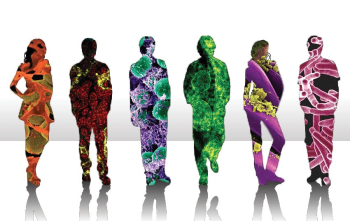
Clinicians will soon be assisted by data analysts in diagnosing and treating chronic as well as genetic disease and make reversing their effects a real possibility.
One of the fastest growing chronic diseases, diabetes, have had doctors at wits end to find remedies and hopefully to reverse its effects for ages. That might not have to wait much longer.
Through big data analytics, the accuracy of a person’s diagnosis can be taken a step further by examining an individual’s microbiome. Microbiome tends to change as a person develops diabetes.
By determining a specific diagnosis, the question can now go on to how do we treat it. Doctors can use that to see how a person’s microbiome is converting and tell the patient which therapy they need to treat it, maybe even reversing the diabetic process.
This new found discovery, was made a possibility through the data genomics explosion that saw additional data on genomes increasing clinicians’ opportunity to work out correlations and connections that were previously overlooked or went unnoticed.
Considering that it used to take 10 years and 50 scientists around the world to sequence the genome of an oil palm, costing billions of dollars, today running a genome sequence is less labour intensive – costing around $1,000 and done in approximately 24 hours. Prices are expected to drop even more, making genome procedures and corrections at the gene level for the common person, a soon to be probability.
This influx of data would need the expertise of data analysts to tabulate, and make sense of, for clinicians to apply to their patients. So the role of doctors will be changing as data analytics begin to disrupt the industry.
Medical information is consistently increasing and evolving and believed to be doubling almost every year. Clinicians now have the tedious task of ingesting information 80-90 hours per-week in studies just to keep up to date with latest technologies and breakthroughs in the field.
Therefore, the role of the doctor is going to have to become more of the guide rather than the information outlet. Where people will go to gather thoughts rather than be told what is wrong. With the data that can be gathered from genomes and the hope of reversing the effects of one of man’s greatest foe, diabetes, we may see the end of chronic disease as we know it. Who knows? With a little luck, we may come to predict evolution of bacteria and viruses, putting an end to all diseases.
 (0)
(0) (0)
(0)Archive
- April 2024(81)
- March 2024(112)
- February 2024(109)
- January 2024(95)
- December 2023(56)
- November 2023(86)
- October 2023(97)
- September 2023(89)
- August 2023(101)
- July 2023(104)
- June 2023(113)
- May 2023(103)
- April 2023(93)
- March 2023(129)
- February 2023(77)
- January 2023(91)
- December 2022(90)
- November 2022(125)
- October 2022(117)
- September 2022(137)
- August 2022(119)
- July 2022(99)
- June 2022(128)
- May 2022(112)
- April 2022(108)
- March 2022(121)
- February 2022(93)
- January 2022(110)
- December 2021(92)
- November 2021(107)
- October 2021(101)
- September 2021(81)
- August 2021(74)
- July 2021(78)
- June 2021(92)
- May 2021(67)
- April 2021(79)
- March 2021(79)
- February 2021(58)
- January 2021(55)
- December 2020(56)
- November 2020(59)
- October 2020(78)
- September 2020(72)
- August 2020(64)
- July 2020(71)
- June 2020(74)
- May 2020(50)
- April 2020(71)
- March 2020(71)
- February 2020(58)
- January 2020(62)
- December 2019(57)
- November 2019(64)
- October 2019(25)
- September 2019(24)
- August 2019(14)
- July 2019(23)
- June 2019(54)
- May 2019(82)
- April 2019(76)
- March 2019(71)
- February 2019(67)
- January 2019(75)
- December 2018(44)
- November 2018(47)
- October 2018(74)
- September 2018(54)
- August 2018(61)
- July 2018(72)
- June 2018(62)
- May 2018(62)
- April 2018(73)
- March 2018(76)
- February 2018(8)
- January 2018(7)
- December 2017(6)
- November 2017(8)
- October 2017(3)
- September 2017(4)
- August 2017(4)
- July 2017(2)
- June 2017(5)
- May 2017(6)
- April 2017(11)
- March 2017(8)
- February 2017(16)
- January 2017(10)
- December 2016(12)
- November 2016(20)
- October 2016(7)
- September 2016(102)
- August 2016(168)
- July 2016(141)
- June 2016(149)
- May 2016(117)
- April 2016(59)
- March 2016(85)
- February 2016(153)
- December 2015(150)